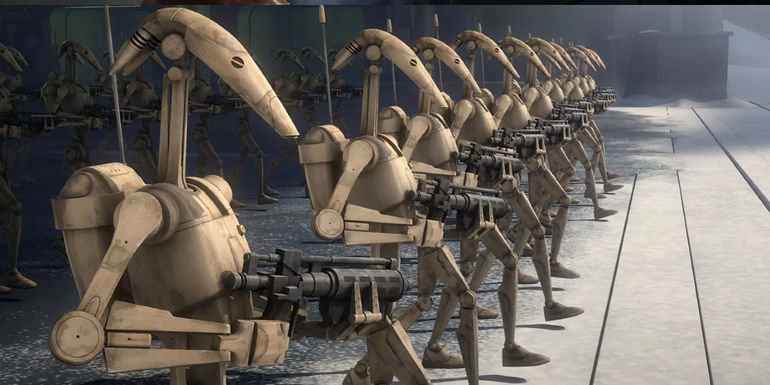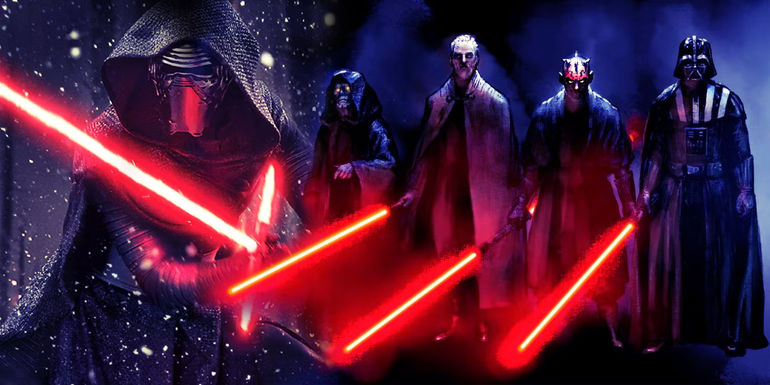
The Mysterious Origin of the Imperial March in Star Wars

Unveiling the secret connection of the Imperial March to the Sith and its significance in the Star Wars universe.
The Iconic Imperial March
A Han Solo twist was secretly set up by Star Wars 10 years before his origin movie, Solo: A Star Wars Story. Solo: A Star Wars Story made it clear that the famous Imperial March is in-universe music. Not only that, but it shows that it is the Empire's theme - used at recruitment stations across the galaxy. Most viewers assumed this was a cool Easter egg, a way of incorporating a classic theme into canon itself.
Star Wars Clone Wars Battle Droids
The Imperial March was composed by John Williams for The Empire Strikes Back. The powerful theme has been used in many Star Wars movies and TV shows since. It has become more than just a piece of music. It is an iconic representation of the spirit of the Empire and the Sith Lords who rule it. The Imperial March evokes feelings of inevitability and resolve with a strong, firm, repetitious tempo. The minor key adds an ominous feel that fits perfectly with the subject it portrays.
Kylo Ren and the Sith Star Wars
The Clone Wars Connection
Solo: A Star Wars Story made this the Empire's theme. But, surprisingly, this isn't the first time it has been used in-universe. In Star Wars: The Clone Wars season 1, episode 2, a Separatist droid hums the Imperial March ominously. This suggests that it has always been popular in-universe as dramatic music - and, interestingly, it is twice associated with groups led by the Sith. Its use in Star Wars: The Clone Wars by a Separatist droid is interesting because Count Dooku, the figurehead of the Separatist movement, is secretly a Sith Lord. This suggests there may well be a strong association between the Sith and The Imperial March.
It's possible the Imperial March is simply a popular piece of music in-universe. If so, though, it's potentally significant that it has only ever been associated with Sith groups - raising the possibility it is an ancient Sith anthem. Religious Orders often have their own music that can be used as a form of worship or a way to create camaraderie. Since the Sith have been around for 5,000 years, it is to be expected that they would have developed their own music; what's more, there have been hints secret Sith infiltrated other aspects of political and philosophical life during the Republic Era, and this could be a similar example.
The Sith Influence
The Sith language is known to be steeped in the dark side, and the same could be true with this music as well. It's easy to imagine the Sith secretly using music to influence the galaxy during the Republic Era, and Palpatine would surely love a scenario where the very Imperial theme became his tool. This is only a theoretical explanation, of course, but it's one that fits perfectly with both Solo: A Star Wars Story and Star Wars: The Clone Wars.
The Sith have a deep history and their influence has been felt throughout the galaxy for millennia. It's not surprising that their presence would extend to cultural aspects, including music. The Imperial March, with its ominous and powerful tone, seems to perfectly encapsulate the essence of the Sith and the Empire. Could it be that this iconic theme has been a subtle tool of the Sith for generations, silently weaving its way through the fabric of the galaxy, waiting to be fully revealed in the dramatic events of the Star Wars saga?















